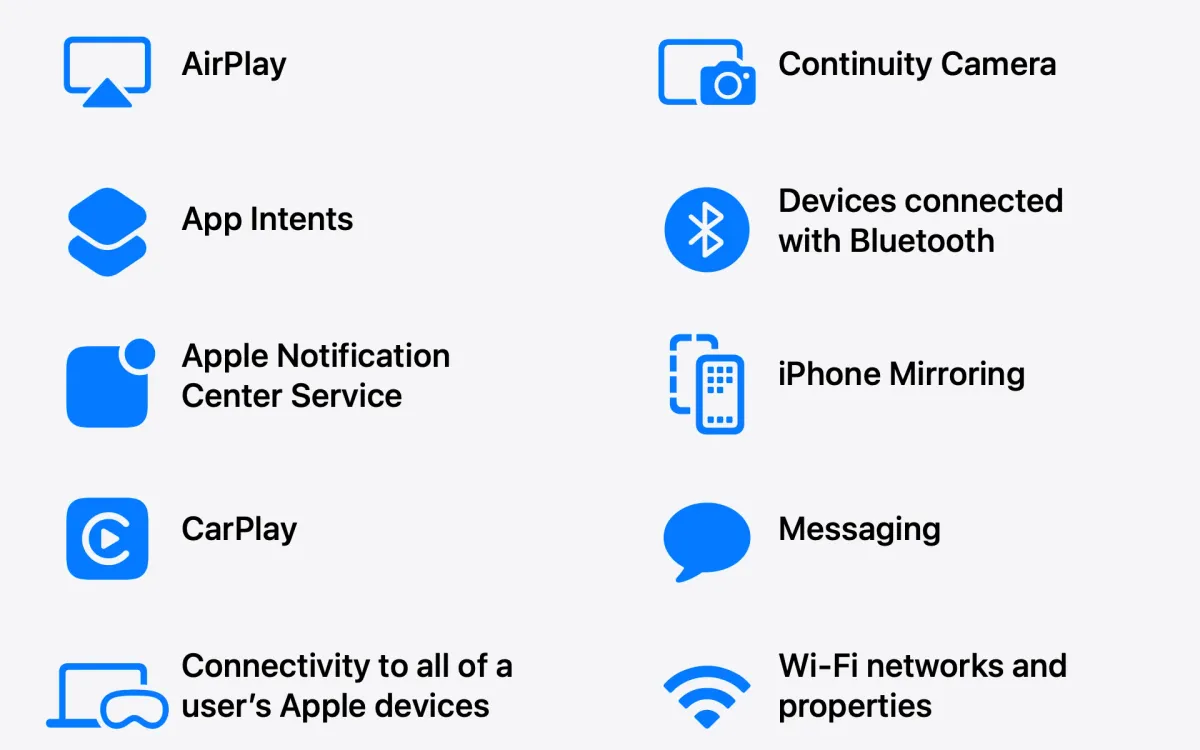
Apple this month outlined significant concerns about potential privacy and security risks arising from the European Union's Digital Markets Act (DMA). The technology giant detailed how certain companies could potentially exploit the new regulations to access sensitive user data.
The announcement comes as Apple details its implementation of changes required by the DMA, which has been in force since March 2024. According to Apple's documentation, Meta, the parent company of Facebook, has already made 15 separate requests for access to Apple's technology stack, raising concerns about user privacy protection.
Apple's response highlights how companies could potentially gain unprecedented access to user data if certain requests are granted. According to the company's documentation, granting all of Meta's requests could enable access to users' messages, emails, phone calls, app usage data, photos, files, calendar events, and passwords on their devices.
"This is data that Apple itself has chosen not to access in order to provide the strongest possible protection to users," the company stated in its announcement. The company emphasizes that it collects only the personal data strictly necessary to deliver products or services.
Meta's requests for access span multiple technologies, including:
- AirPlay functionality
- App Intents framework
- Apple Notification Center Service
- CarPlay capabilities
- Continuity Camera
- Messaging services
- iPhone Mirroring
- Wi-Fi networks and properties
According to Apple, these requests go beyond what's necessary for Meta's external devices like smart glasses and Meta Quest headsets. The company argues that granting such extensive access could fundamentally alter the privacy landscape of iOS devices.
The privacy debate emerges against a backdrop of previous regulatory actions. On November 26, 2021, Italy's competition authority fined both Apple and Google 10 million Euros each for violations related to consumer rights and unfair commercial practices. The Italian authority specifically cited concerns about Apple's handling of user data through Apple IDs.
The DMA established requirements for companies designated as gatekeepers in the digital market. For Apple, this has meant implementing significant changes to its iOS ecosystem while attempting to maintain its privacy standards. According to the documents, Apple must balance compliance with protecting user security.
Apple's response strategy
Apple has outlined a four-step process for handling interoperability requests:
- Request submission from EU developers
- Initial assessment of DMA compliance
- Development of tentative project plans
- Implementation of approved solutions
The company emphasizes its commitment to reviewing all requests while maintaining platform security. "We work diligently to review all requests and implement them when possible, taking into account the need to protect privacy and security on the platform," Apple stated in its documentation.
Technical implementation challenges
Apple has faced significant technical challenges in implementing the required changes. The company has had to modify its iOS system to allow third-party app stores and alternative payment systems while maintaining security measures. This includes developing new frameworks and APIs for:
- Alternative app marketplaces
- Alternative browser engines
- Contactless payments
- Expanded default app controls
Privacy safeguards
Apple maintains that its privacy protections are essential for user security. The company processes data on devices whenever possible, rather than sending it to servers, to minimize data collection. This approach contrasts with some third-party practices that may prefer server-side processing for data monetization.
Industry impact
The implementation of the DMA could set precedents for digital market regulation globally. Apple's response highlights the tension between regulatory compliance and maintaining privacy standards that have been central to its product philosophy.
Future implications
The outcome of these regulatory changes could significantly impact how technology companies handle user data in the European Union. Apple has stated it will "never abandon our bedrock commitment to our users' privacy and security," while expressing trust that the European Commission will implement interoperability requirements in a manner that respects the General Data Protection Regulation (GDPR).
Nine months after the March 2024 DMA compliance deadline, the technology industry continues to adapt to the new regulatory landscape that affects the balance between open markets and user privacy. The implementation of these regulations has set important precedents for future digital market governance worldwide.
Apple's detailed response to the DMA highlights the complex challenges facing technology companies as they navigate between regulatory compliance and user privacy protection. The ongoing implementation of these regulatory changes continues to reshape how digital platforms operate in the European Union and influences similar regulatory discussions in other regions.

